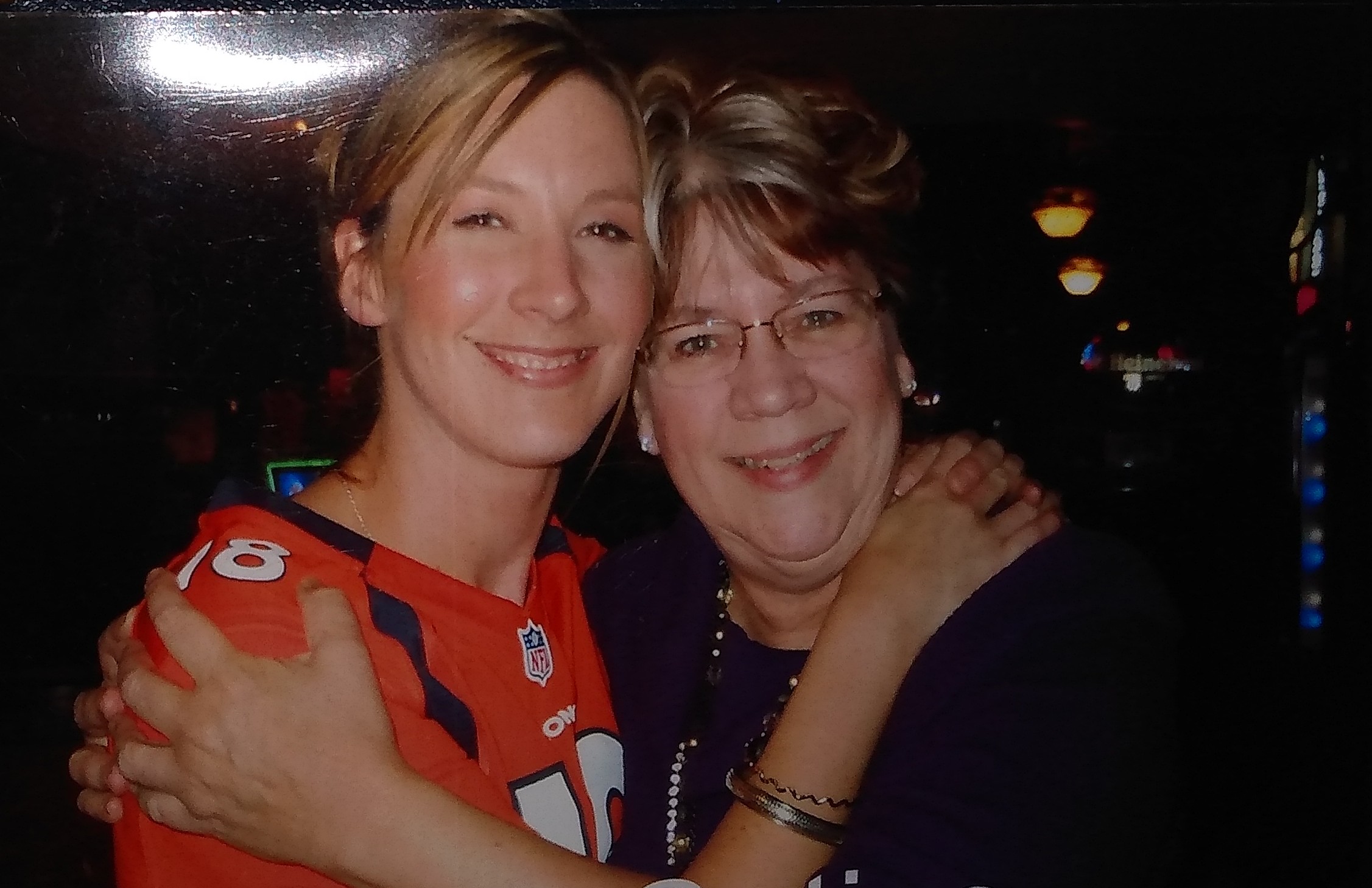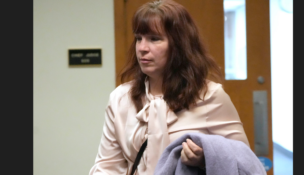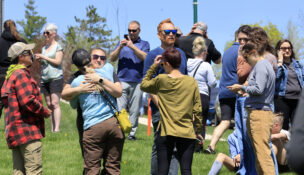Death of woman discharged from Froedtert ER highlights gap in medical malpractice laws
By: Steve Schuster, [email protected]//July 20, 2023//
Death of woman discharged from Froedtert ER highlights gap in medical malpractice laws
By: Steve Schuster, [email protected]//July 20, 2023//
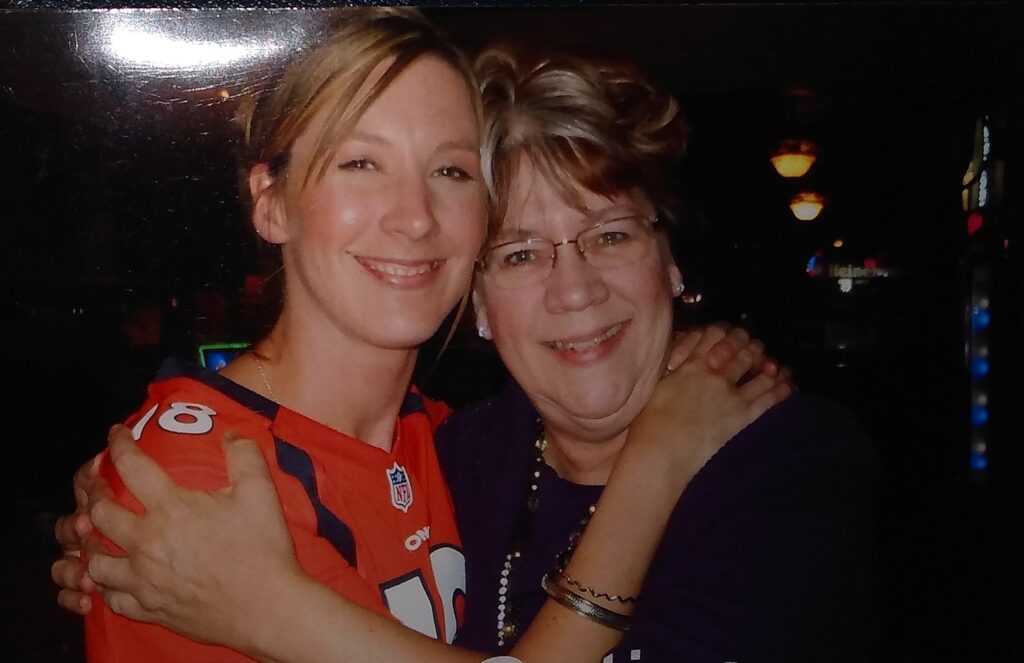
By Steve Schuster
[email protected]
It was crisp December morning in 2018 when Kenosha resident Courtney Fiegel went through an experience that would forever change her life.
On Dec. 4, 2018, Fiegel’s mother, 65-year-old Kathryn A. Olle, was rushed to Froedtert South Hospital’s emergency department in Kenosha. Olle was seeking treatment because her nose would not stop bleeding and would not clot following an ENT surgery, Fiegel said. Shortly after being evaluated by an emergency department physician, Olle was discharged from the hospital, Fiegel added.
Less than one week later Olle returned to the very same Froedtert South Emergency Department in Kenosha. Olle died on Dec. 10, 2018, Fiegel said.
Fiegel (who works in health care) said the attending Emergency Department physician refused to treat Olle properly.
“Doctor (redacted) refused to treat my mother. She was sitting there with blood clots, he wouldn’t even order a basic CT scan. He had absolutely no concern for my mom,” Fiegel said.
“My mom couldn’t even breathe. She was slowly choking to death in Froedtert’s emergency department and he (the doctor) discharged her,” Fiegel added.
Fiegel said she left a negative review on Google of her mother’s experience with the doctor.
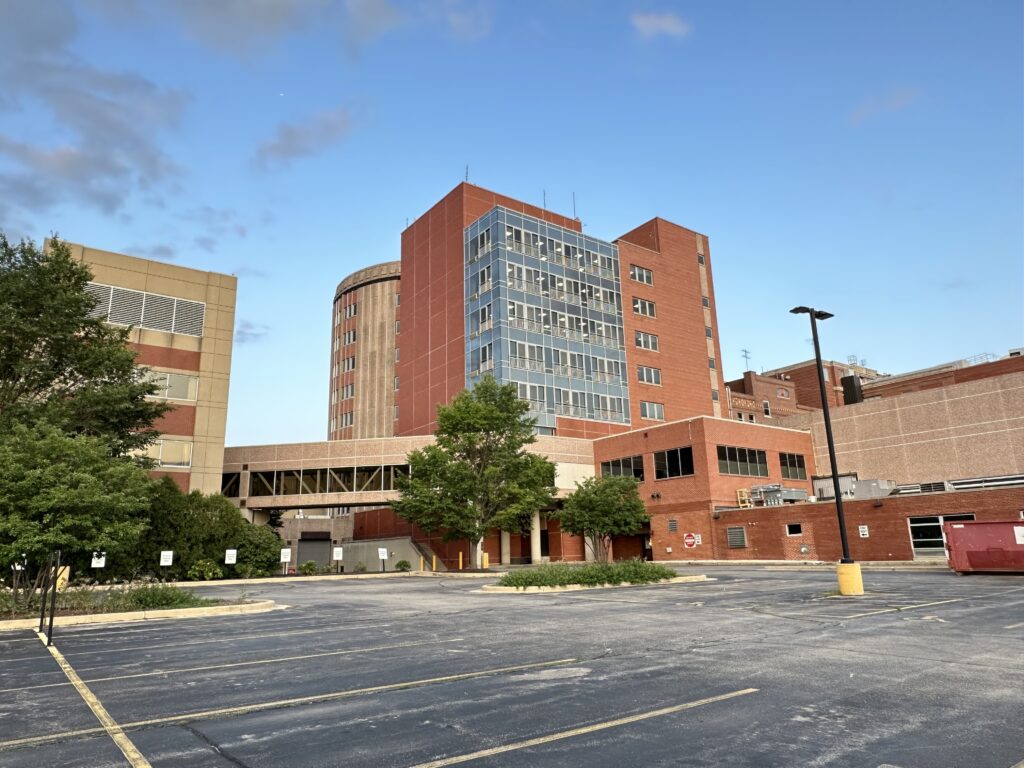
The emergency room doctor who treated Fiegel’s mother returned the Wisconsin Law Journal’s phone call on July 18 and said, “there is no story here, I will be going after that lady personally (for defamation).”
Within minutes of speaking with doctor, the Wisconsin Law Journal received a phone call from Attorney Joseph Olson, who said he is representing the ER doctor who treated Olle, despite no formal complaint or lawsuit being filed against the doctor. Olson said he is representing the doctor for the alleged defamatory statements made by Fiegel.
Olson issued a statement to the Wisconsin Law Journal on July 18 about his client.
“No complaint was ever made against Dr. (redacted) to the Wisconsin licensing authorities regarding this matter. Dr. (redacted) has never been found to have violated a standards of care and his skills as an emergency doctor are well respected within the community,” Olson said.
Olson then added, “Once the identity of ‘Court Court 9925’ is confirmed, a defamation lawsuit will be strongly considered by my client, as her “google review” is entirely false. Any media amplification of ‘Court Court 9925’s’ defamation without reasonable investigation may lead to further liability.”
The Wisconsin Law Journal attempted to investigate the allegations, however, Froedtert South declined to comment, citing HIPAA limitations.
In response to Olson’s statement, Fiegel told the Wisconsin Law Journal that she did, in fact, file a formal complaint against the doctor with the hospital. The complaint resulted in a peer review of the doctor, a safety team response, medical malpractice insurance carrier’s involvement, and contact from multiple attorneys, Feigel said.
“They wouldn’t have set up a peer review for a whole board and then pretend that I’m just making this up … if it didn’t happen then why did his employer pass it on to malpractice insurance?” Feigel asked.
Fiegel said the hospital advised her to file a claim with Froedtert’s insurance company, Mag Mutual.
Ultimately, Mag Mutual denied Fiegel’s claim and said, “an adult child can’t bring a malpractice suit in the state of Wisconsin, only a spouse can do that.”
At that point, Fiegel reached out to lawyers for advice. To date, none have been able to assist, citing a gap in Wisconsin statutes, failing to provide recourse for adult children who lost a parent due to medical negligence.
The Wisconsin Law Journal reached out for comment to several of the same attorneys Fiegel contacted who confirmed the existing gap in current Wisconsin Statutes.
“This is a gap in the law, and it’s an unintended gap,” said Attorney Robert Jaskulski with Habush, Habush & Rottier during an interview with the Wisconsin Law Journal.
Wisconsin law does not recognize the right for a child to bring a claim against a loss of a parent, said Jaskulski.
“It’s the way Chapter 655 was created by the Wisconsin Legislature. I don’t believe there was intent when they created language to not allow adult children for medical malpractice that causes the death of an adult parent when survived by an adult spouse,” Jaskulski added.
According to Jaskulski, any time his firm gets a phone call regarding a claim involving medical negligence, the first question asked if is there a surviving spouse, or a minor child, because they would be able to make a claim under current Wisconsin law.
Jaskulski noted that if Olle had died in a traffic crash from negligence, Fiegel would have been more easily able to seek to recover damages.
“If she had been driving down the road and gone through intersection and another car blew a red light, killing her, (Fiegel) could have recovered damages,” Jaskulski said, noting that “these laws do not apply to medical malpractice in Wisconsin.”
The result?
“You have lawyers in the state turning down hundreds of cases of elderly patients who died in a hospital setting and their adult children have legal no remedy,” he said.
Jaskulski said that he and other Wisconsin lawyers aren’t “calculating business loss.”
“I know that this sounds altruist, our primary concern is honestly to keep the courthouse doors open, advance civil justice and protect victims’ rights,” Jaskulski said, noting he previously served as president of the Wisconsin Association for Justice.
Jaskulski said he currently serves as head of the Legislative Task Force, where he lobbies against tort review designed to close courthouse doors.
“Fiegel’s case is classic example of the horrible unintended result that closes the door to courthouses to the more vulnerable victims, the elderly. We have been lobbying for decades for adoption of Family Justice Bill, which would correct the unintended statutory anomaly that doesn’t allow these claims, but allows these cases in wrongful deaths out on our highways. It just doesn’t make a lot of sense,” Jaskulski said.
During an interview with the Wisconsin Law Journal, Kenosha County-based Attorney Paul Gagliardi said, “We provided testimony from adult children of alleged medical negligence to hopefully persuade legislature to amend the medical negligence statute and correct this loop hole.”
In 2007, Jaskulski and Keith R. Clifford also testified before the Wisconsin Senate Health and Human Services Committee on behalf of the Wisconsin Academy of Trial Lawyers on Senate Bill 138.
“Wisconsin law should protect all citizens who are harmed by the negligence of others by allowing equal access to our courts. The fact that we have a system of justice in Wisconsin that affords less protection to young adults and the elderly by effectively denying their families access to our courts when they die because of a medical error is a serious problem that needs to be corrected,” Jaskulski said.
According to Jaskulski, in 2008 the Family Justice Bill was introduced but did not advance in the Legislature due to Republican opposition. Once Scott Walker became governor in 2011, it became even more difficult to advance the bill, he said.
“We called the amendment ‘The Family Justice Act.’ Even though there were many legislators willing to support the bill it never gained traction. This is politics in its worse form. Even though it doesn’t make sense, it is pushed aside. We’ve tried to make voters aware of this type of injustice but realistically our efforts have fallen on deaf ears. It obviously hits home when the injustice affects your own loved one,” Gagliardi added.
Jaskulski noted redistricting of the Senate and Assembly District maps created a large Republican majority beginning 2010, and Republicans have been against the measure.
“As a consequence, this bill has gone nowhere since it was last introduced because there isn’t support from majority to move the bill forward,” he said, noting that prior to Walker becoming governor, “this was high on legislative agenda … access to those seeking justice and access to our courts.”
In 2010, the State Bar of Wisconsin reported the Family Justice Bill passed the Senate and advanced to the Assembly — where it ultimately died.
Since then, other legislators have attempted to introduce measures to provide additional access to justice for victims’ adult children.
Wisconsin Rep. Christine Sinicki (D – St. Francis, Cudahy, Milwaukee) introduced Assembly Bill 923, which says disabled adult children or adult children in college who are financially dependent on a parent who dies could seek legal action.
During an interview with the Wisconsin Law Journal on July 18, Rep. Sinicki said she plans to introduce a package of measures when the Assembly returns in September.
“Children, whether adults or not, should have the right to number one: get answers that they are looking for; and number two: be compensated for their loss,” Sinicki said.
According to the bill text from last session, “both minor and certain adult children have the right to recover for loss of society and companionship and other damages if the parent is injured or dies as the result of medical malpractice.”
Although that bill did not advance in 2022, Sinicki said, she will introduce a similar measure in the next legislative session along with other related measures.
Another bill Sinicki plans to introduce would require cameras in surgery areas to help maintain accountability.
“We need to know who is doing what and what happens when something goes wrong,” she said.
Sinicki also noted that this is highly partisan political issue with Republicans historically opposing the Family Justice bill. When asked why, she noted the “pay-play” history that Republicans have received donations from hospital associations who oppose the legislation.
A Wisconsin Law Journal Investigation revealed the Wisconsin Hospital Association donated more than $383,000 to Wisconsin Republican candidates in the past 26 years and $139,000 to Wisconsin Democrats.
The Milwaukee Journal Sentinel reported in 2014 that Walker received more than $186,000 in donations from physician and hospital groups between 2006-2013, saying, “The medical lobby, supported by powerful business groups, outmaneuvered trial lawyers once again this spring and won passage of the ‘I’m sorry’ bill, which prohibits apologies by doctor being used as evidence in malpractice lawsuits. Gov. Scott Walker signed the bill into law in April.”
In the meantime, Hollywood has taken note of Wisconsin’s statutory gap in a film called Bleed Out.
The HBO film references two cases that plaintiff’s attorneys say created the gap in law. The film looks at Czapinski v. St. Francis Hospital, Inc., 236 Wis. 2d 316 (2000) (and Lornson v. Siddiqui, 302 Wis. 2d 519 (2007)) and Estate of Wells v. Mt. Sinai Medical Center, 183 Wis. 2d 677 (1994).
Wells establishes a parent whose unmarried adult child dies has no claim. Czapinski establishes an adult child does not have the right to recover for the loss of society and companionship of a parent who died as the result of medical malpractice.
“Both cases effectively close out the ability to seek any justice due to the loss,” said Jim Rogers, government affairs director for the Wisconsin Association for Justice, during an interview with the Wisconsin Law Journal.
As previously reported by the Wisconsin Law Journal, both Froedtert hospital locations in Kenosha County (Pleasant Prairie and Kenosha) received the lowest safety grades in the entire state, a “D.” In comparison, Northwestern Medicine Lake Forest Hospital, just 25 miles south, received the best possible grade, an “A.”
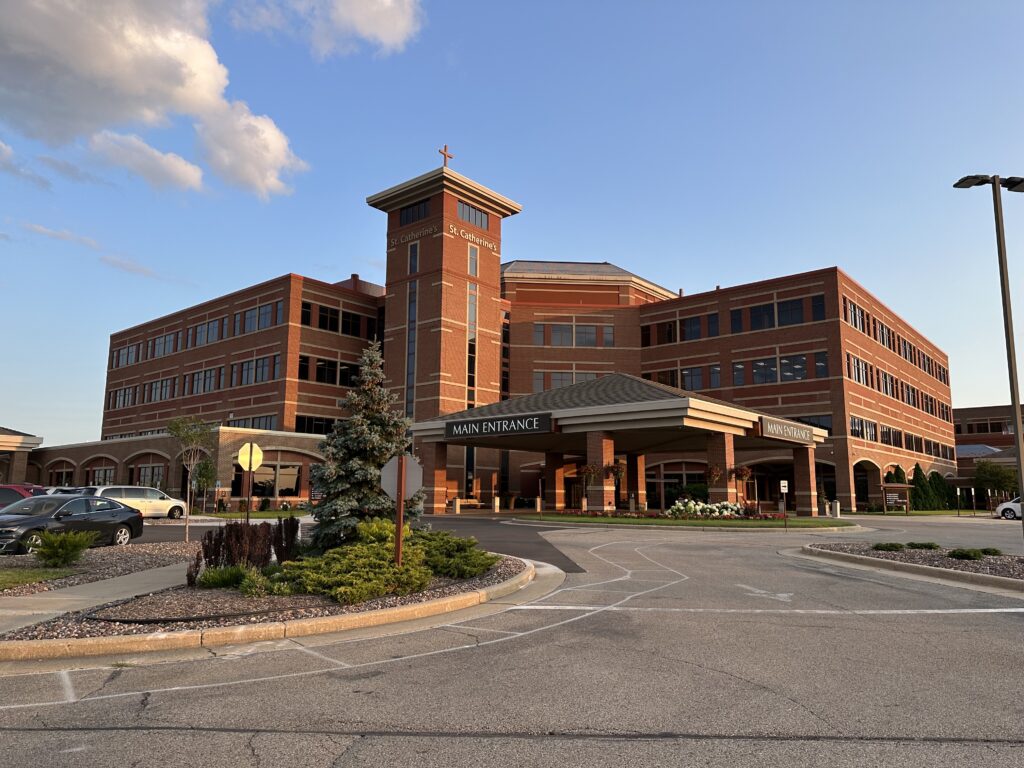
During an interview with the Wisconsin Law Journal, Fiegel said hindsight is 2020 and if she had to do it all over again she would have driven the extra 25 miles and taken her mother to Northwestern Medicine in Lake Forest, Ill.
“By going to Northwestern, the outcome would be for my mom to be able to live her life for additional years to come,” Fiegel said.
According to Froedtert South’s website, after many years of professional affiliation with Froedtert & the Medical College of Wisconsin, United Hospital System changed its legal name to Froedtert South and began providing health care services under the brand name of the Froedtert & the Medical College of Wisconsin health network in 2017. Froedtert South continues to operate as a locally-led organization and retains its own health system departments and administrative services, medical group leadership, and credentialing.
Froedtert is no stranger to litigation. As previously reported by the Wisconsin Law Journal, preliminary approval was granted in June for $2 million class action settlement against Froedtert. In 2023CV001935 Keefe John et. Al. vs. Froedtert Health, Inc.
In that matter, Froedtert admitted no wrongdoing, but agreed to pay out a total of $2 million to be divided among more than 459,000 class action members (less fees and expenses).
During an interview with the Wisconsin Law Journal, Chicago-based Attorney David Almeida, who represented the class members, said, “the defendant agrees not to use pixels on public facing websites, and also on the patient portal, as a part of settlement Froedtert also agreed not use pixel on public facing website for certain amount of time.”
In 2018, TMJ4 reported practices at Froedtert/Medical College of Wisconsin may have caused avoidable deaths for patients waiting on life-saving organs, which captured the attention of Federal investigators.
As for Fiegel’s case, under current Wisconsin law, attorneys have said she has no recourse.
Legal News
- Wisconsin lawyers file University of Wisconsin public records request seeking answers to protests
- Wisconsin Supreme Court issues orders amending Supreme Court rules and Wis. Stats.
- EXCLUSIVE: Former Milwaukee ‘big law’ partner attacks news media for bias against Trump
- Former Milwaukee election official fined for obtaining fake absentee ballots
- Contract dispute prevents airing of 15 regional sports networks, impacts Brewers
- Wis. middle school focuses on recovery as authorities investigate shooting
- Gov. Evers seeks applicants for Sheboygan and Green County Sheriffs
- North Carolina man who harbored Nazi memorabilia and attacked Black and Latino men sentenced to 41 months
- Nation grieves with families of officers killed in NC
- Amended complaint filed in federal court against State Bar of Wisconsin seeks punitive damages
- United Healthcare suit against cancer drug distributor time-barred
- Trump’s Wisconsin visit warns of jail time if he violates a trial gag order
WLJ People
- Power 30 Personal Injury Attorneys – Russell Nicolet
- Power 30 Personal Injury Attorneys – Benjamin Nicolet
- Power 30 Personal Injury Attorneys – Dustin T. Woehl
- Power 30 Personal Injury Attorneys – Katherine Metzger
- Power 30 Personal Injury Attorneys – Joseph Ryan
- Power 30 Personal Injury Attorneys – James M. Ryan
- Power 30 Personal Injury Attorneys – Dana Wachs
- Power 30 Personal Injury Attorneys – Mark L. Thomsen
- Power 30 Personal Injury Attorneys – Matthew Lein
- Power 30 Personal Injury Attorneys – Jeffrey A. Pitman
- Power 30 Personal Injury Attorneys – William Pemberton
- Power 30 Personal Injury Attorneys – Howard S. Sicula
